My fellow Americans, we live in a time of political gridlock, of discord and intractability within the storied halls of government.
Both sides of the aisle will often resurrect our Founding Fathers to beef up their positions, quoting them (or, more often, misquoting them) in support of one thing or another. If you were to believe many politicians, Washington and Jefferson had opinions on topics ranging from internet surveillance to legalizing pot. No matter how you interpret the framers’ intentions, the fact is that our current political machine is a rusty junker that’s ground to a halt. Perhaps now, on our nation’s 238th birthday, we should remember one very important lesson passed down from the Founders: every good machine needs a certain amount of lubrication to function well.
On top of being statesmen and revolutionaries, men like Thomas Jefferson, John Adams, and George Washington also knew how to drink — and drink they did. In the 13 years between our declaration of independence in 1776 and the election of our first president in 1789, these men were tasked with creating a new nation from scratch. There were fierce debates, false starts, and terrible failures before a Constitution was finally ratified and a president elected. Aiding the framers through the birth of modern democracy was an astronomical amount of booze.
We shouldn’t be surprised by this. Your average colonist guzzled about seven gallons of alcohol per year. That’s a lot. In comparison, a contemporary American downs just over two gallons each year. Back then, by lunchtime, most people were two or three beers into their day, and by bedtime — after more beer, an extravagant portion of hard cider, wine and Madeira, and probably a few healthy tipples of rum — the totality of America must’ve been pretty slurry.
Some attribute the high rate of boozing back in the day to the scarcity of potable water. Others say that’s just drunken rationalizing; that, in fact, our British heritage was a lot more to blame. The popular belief in England at the time was that water, clean or not, was bad for your health. Beer and cider weren’t even categorized as alcohol, but rather as food, and as status symbols. Only the most destitute drank water because they had no other choice.
In fact, the colonists considered alcohol to be much more than just a recreational part of daily life. It was a cure-all for the sick and enfeebled, a restorative for the weak and elderly, and an important ingredient in the communal glue that held colonial society together.
Slideshow: The Surprising Drinking Habits of Our Founding Fathers (Slideshow)
Today, we’ve come to understand that drinking from dawn into the wee hours isn’t necessarily the healthiest way to live our lives, but there’s a lesson to be learned here that perhaps current American politicians should clue into: amazing things can be accomplished when people who disagree come together over a few beers and hash it out. Just ask Alexander Hamilton and Aaron Burr (okay, bad example).
Check out the slideshow for more teachable moments brought to you by the founders of our nation, and may God blesh ‘Merica *hic*.
1. George Washington
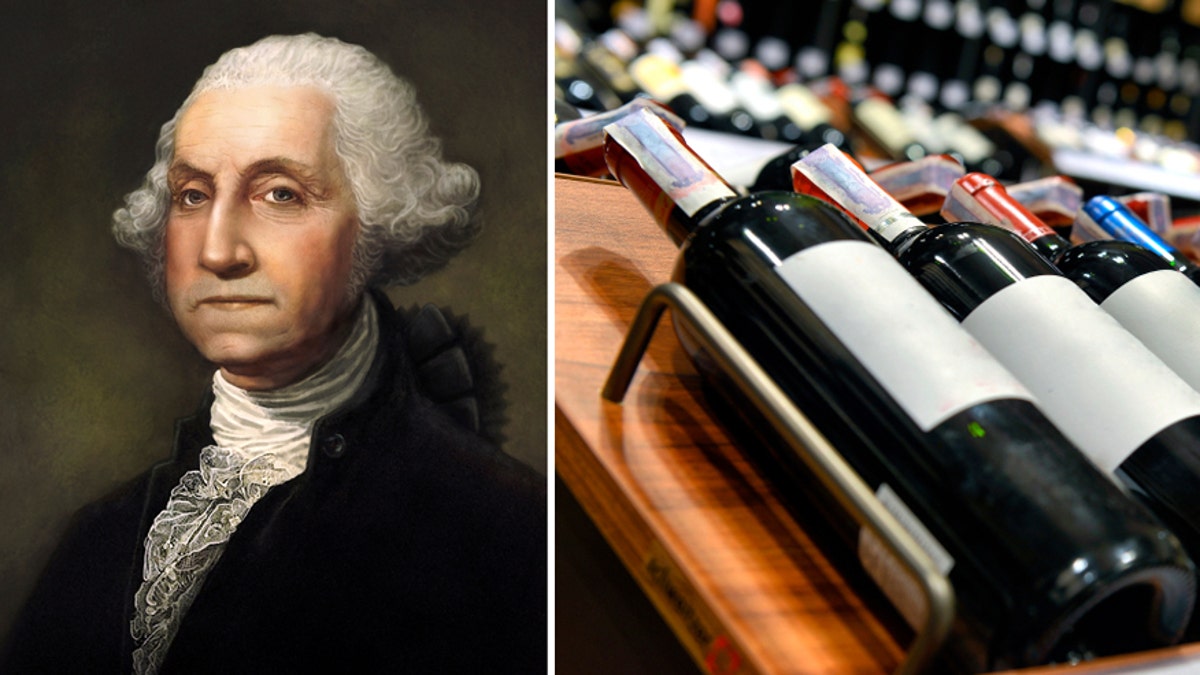
(iStock)
We’re taught to think of Washington as the stoic, sober, wooden-toothed patriarch of our nation, but nothing could be further from the truth. Washington was known for tying one on with about four bottles of wine and dancing the night away. After his presidency, he opened one of the largest whiskey distilleries in the country at Mount Vernon that produced 11,000 gallons in 1799, the year he died.
2. John Adams
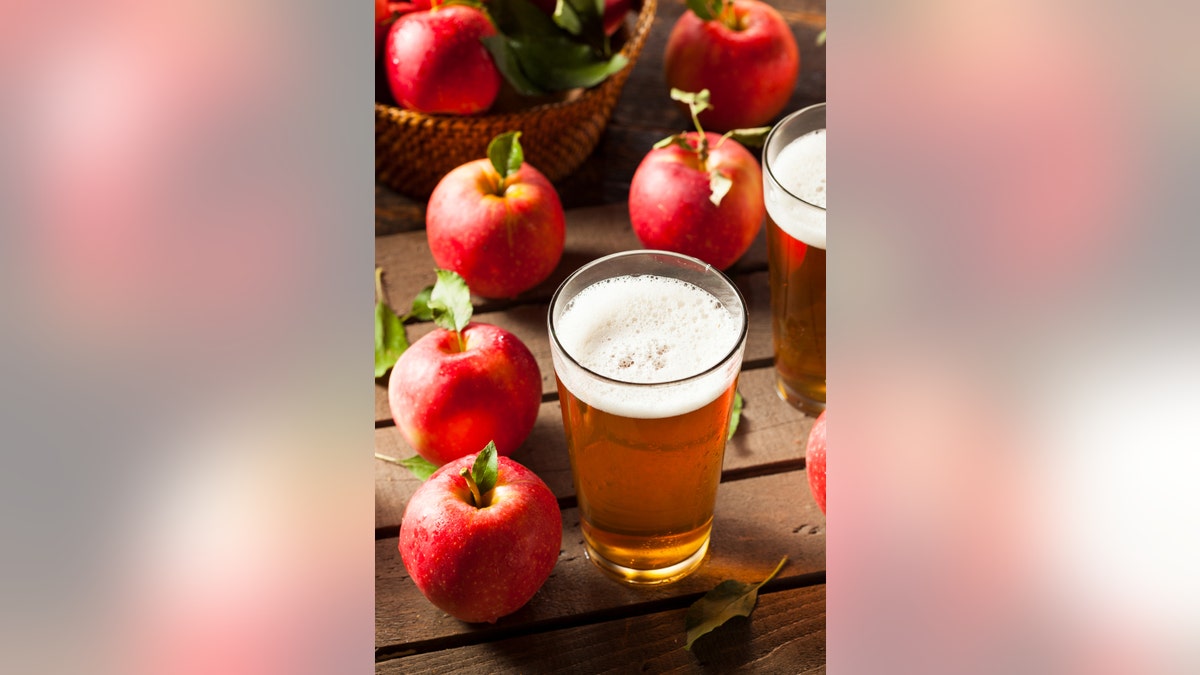
Hard Apple Cider Ale Ready to Drink (iStock)
It’s tough to say, but John Adams may have been the biggest drinker of the Sons of Liberty. He began every day with a draft of hard cider before breakfast. He drank three glasses of Madeira, a wine fortified with rum, every night before bed. During the bad old days under British taxation, Adams wrote to his wife, “I am getting nothing that I can drink, and I believe I shall be sick from this cause alone.” He died at 90. Of old age.
3. Paul Revere
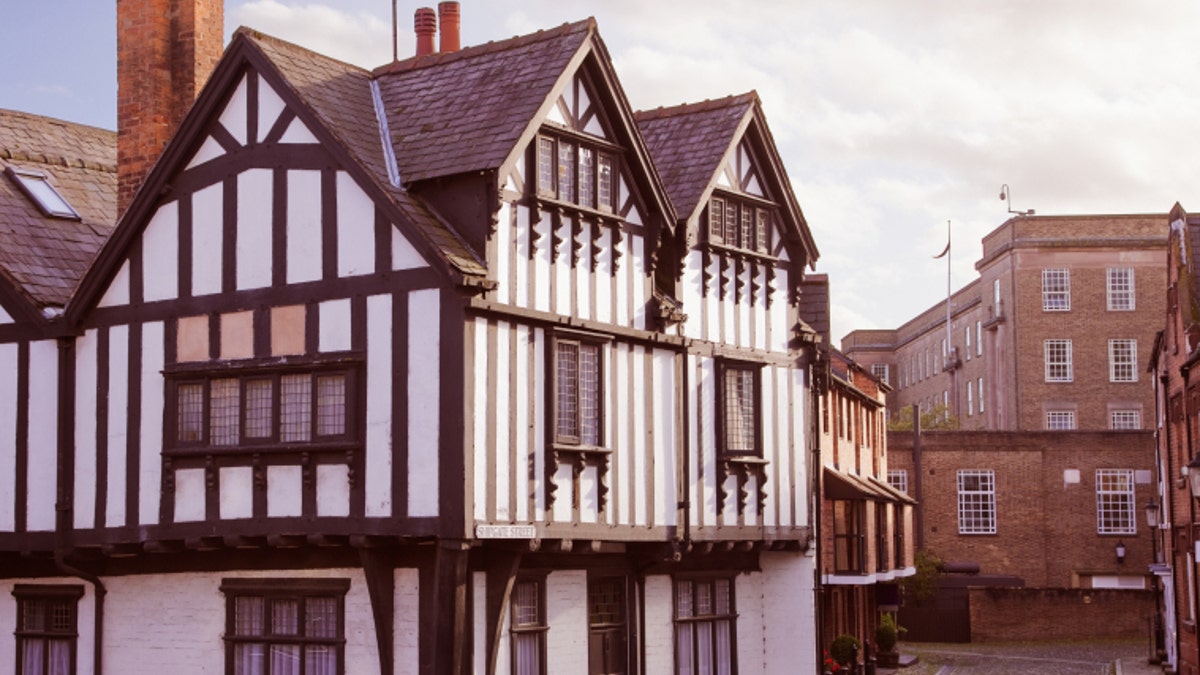
Half-Timbered English building by a small cobblestoned small street. (iStock)
In 1775, Paul Revere famously rode out of Boston at midnight to warn his fellow patriots that British were planning a march on Lexington. But how did the word spread so fast and effectively? Because the people he was warning were at the many taverns at which he stopped on the way. According to his own journals, he may have had a few toots before the ride was over.
4. Thomas Jefferson
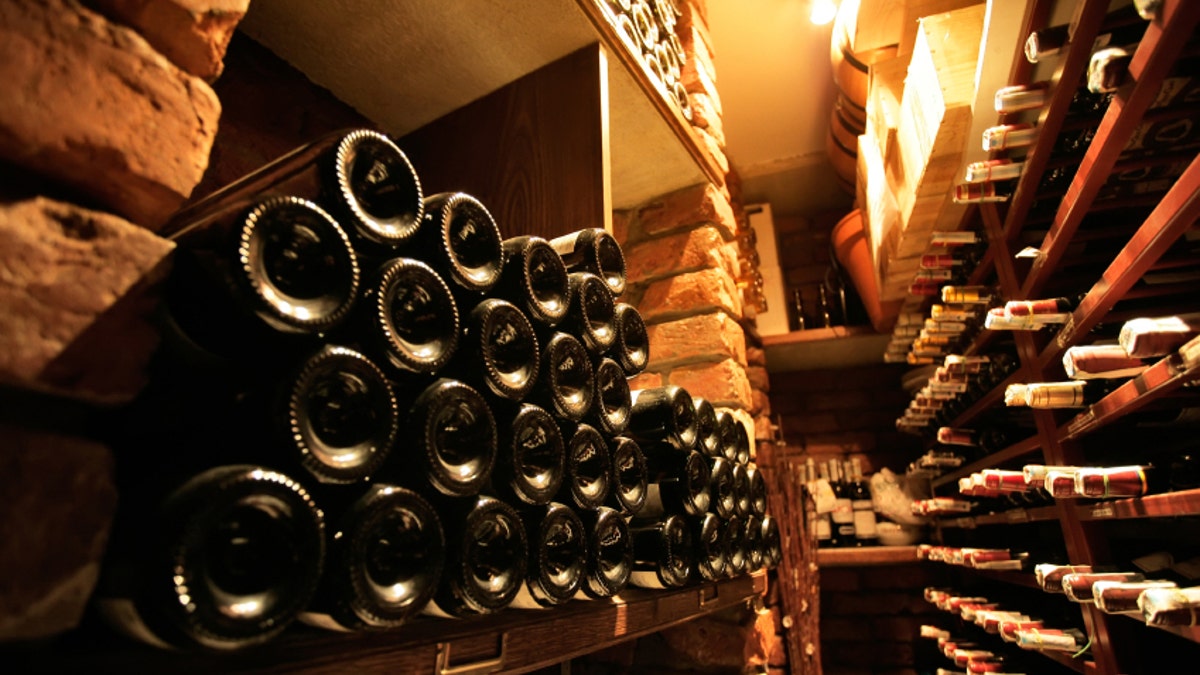
Wine cellar in small french restaraunt (iStock)
Our third president was, beyond being a master of statecraft, a very serious connoisseur of wine. During the Revolution, on diplomatic missions to France, he toured the vineyards of Bordeaux extensively. As president, he imported more than 20,000 bottles for his personal collection. Despite this, he insisted he was not a drunk: “…you are not to conclude I am a drinker. My measure is a perfectly sober one of 3 or 4 glasses at dinner, and not a drop at any other time. But as to those 3 or 4 glasses I am very fond."
5. Benjamin Franklin
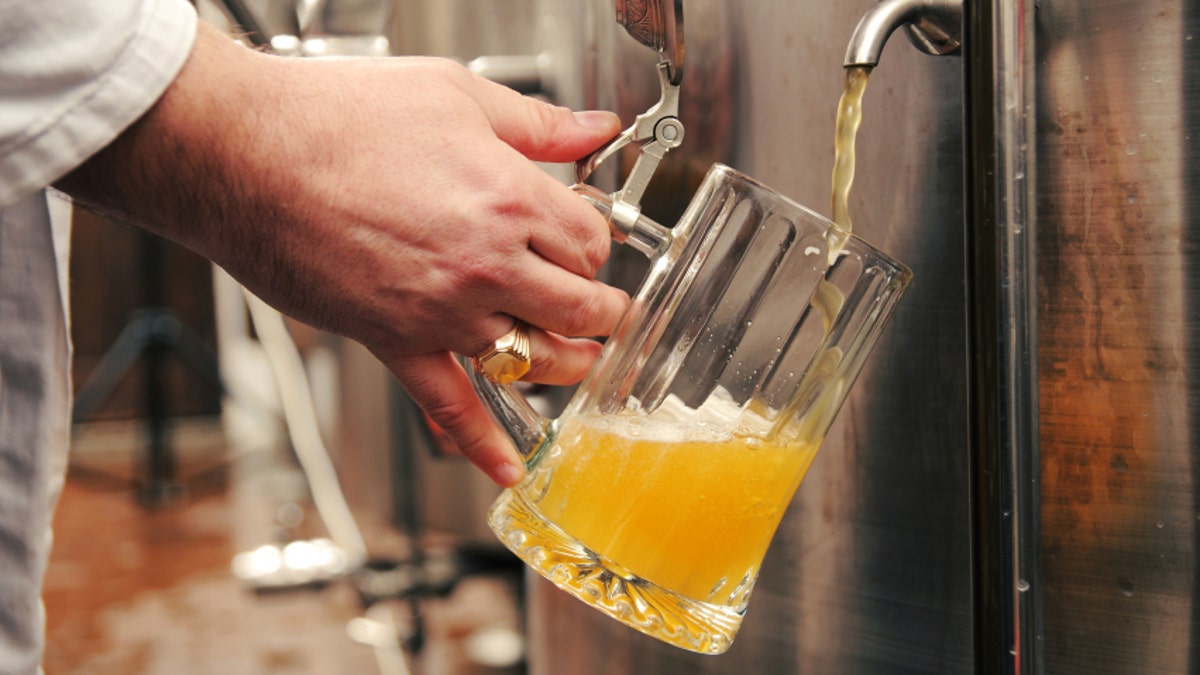
Brewery technologist pouring a fresh beer in the glass. (iStock)
Though he may have been the most temperate among his fellow Founders, Ben Franklin said, “Beer is living proof that God loves us and wants to see us happy.” A brewer and distiller in his own right, he’s also famous for coming up with The Drinker’s Dictionary, over 200 euphemisms for getting tore up. Among my favorites: “Piss’d in the Brook,” “Wamble Crop’d,” and “Been too free with Sir John Strawberry.”
6. Samuel Adams
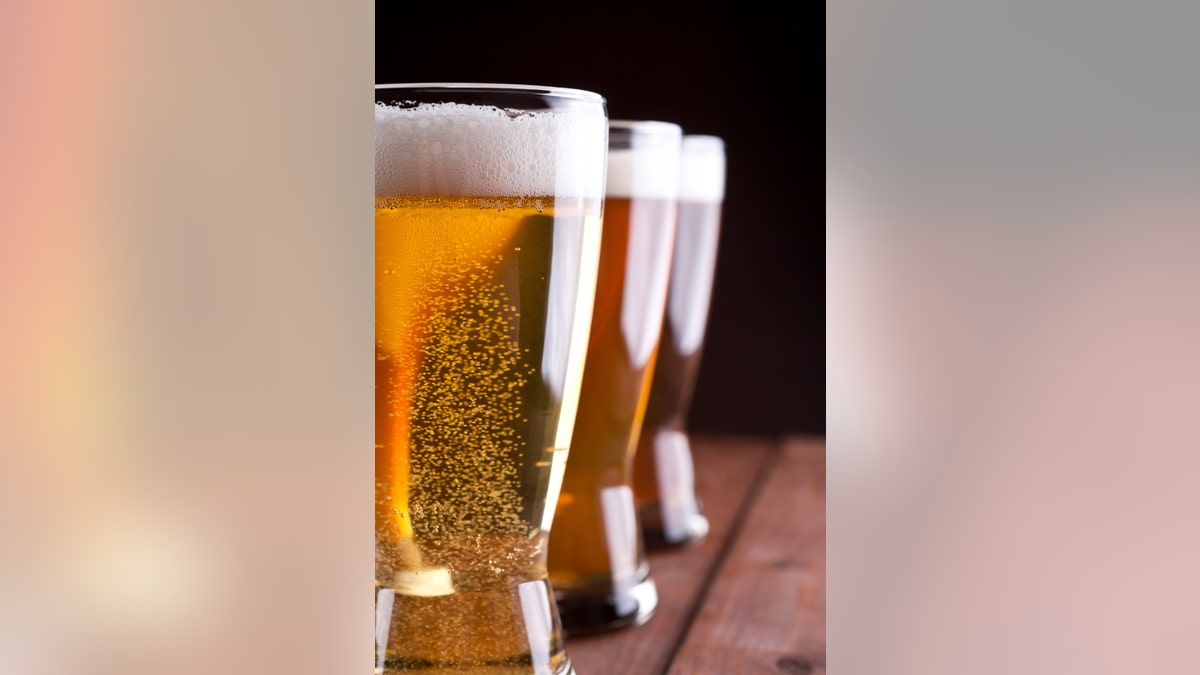
Variety of Fresh Draught Beer on a Wood Table. [url=http://www.istockphoto.com/search/lightbox/13799829#17a0d007][img]http://www.richardrudisill.com/istockbanners/beer_mugs_and_taps.jpg[/img][/url] [url=http://www.istockphoto.com/search/lightbox/13800629#1735ba22][img]http://www.richardrudisill.com/istockbanners/mixed_drinks.jpg[/img][/url] [url=http://www.istockphoto.com/search/lightbox/13800638#1b77df50][img]http://www.richardrudisill.com/istockbanners/wine.jpg[/img][/url] [url=http://www.istockphoto.com/search/lightbox/13799815#d34e4b6][img]http://www.richardrudisill.com/istockbanners/food_and_drink.jpg[/img][/url] (iStock)
Among the many lines on his resumé, one of them was brewer. Specifically, Sam Adams was a maltster in his father’s brewery, the guy who made the malts that would eventually become beer. He was also a master politician, and is credited with organizing the Revolution from inside New England taverns by getting would-be Minute Men mad as hell over the high price of rum.
7. John Hancock
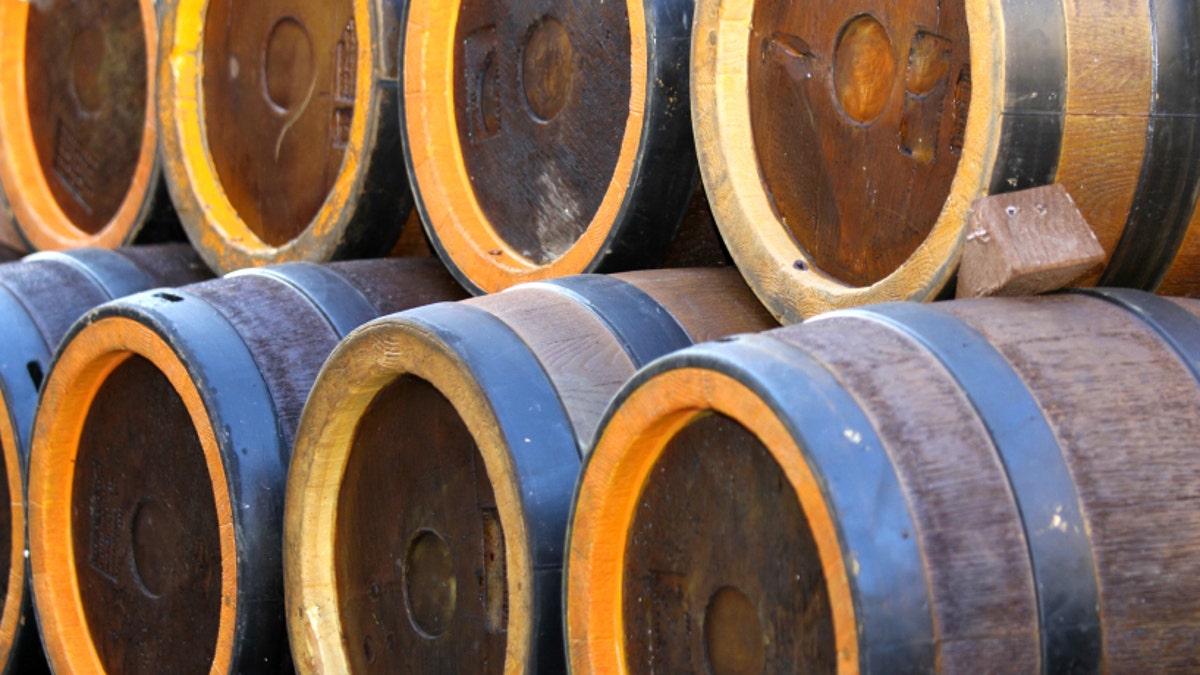
pile of barrels to contain the spirits like brandy or wine cellar (iStock)
Before he ever put quill to parchment as the first signer of the Declaration of Independence, Hancock smuggled more booze into the colonies than most anyone else. He ended up being sued by the British government for unpaid taxes to the tune of about $7 million in today’s money. This is how revolutions start, people.
See more unusual drinking habits of America's Founding Fathers.
More from The Daily Meal
Billionaire Loses Bid to Sue Over Thomas Jefferson's Wine
220 More Ways to Call Someone a Drunk, According to 'Benjamin Franklin'
